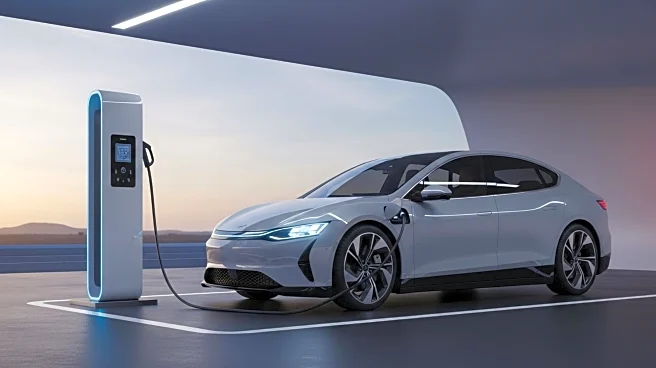What is the story about?
What's Happening?
The article discusses the advantages of electric vehicles (EVs) over traditional gas-powered cars, emphasizing the concept of freedom. It argues that electric cars offer more personal freedom due to the ability to charge at home or work, reducing dependency on oil companies and gas stations. The piece highlights the decentralized nature of electricity sources, including the potential for individuals to generate their own power through solar systems. The narrative is supported by personal anecdotes illustrating the cost savings and convenience of EVs compared to gas vehicles, particularly in terms of fuel and maintenance expenses.
Why It's Important?
The shift towards electric vehicles is significant for several reasons. Economically, EVs can reduce consumer spending on fuel and maintenance, allowing for greater financial freedom. Environmentally, they offer a cleaner alternative to fossil fuels, contributing to reduced emissions and a smaller carbon footprint. This transition also impacts the energy sector by increasing demand for renewable energy sources and infrastructure. For consumers, the ability to charge vehicles at home or work enhances convenience and reduces reliance on traditional fuel supply chains, potentially leading to a more sustainable and self-sufficient lifestyle.
What's Next?
As the adoption of electric vehicles continues to grow, further developments in charging infrastructure and battery technology are expected. This could lead to even greater convenience and range for EV users, addressing common concerns about charging times and range limitations. Additionally, policy changes and incentives may further encourage the transition to electric vehicles, impacting the automotive industry and energy markets. Stakeholders, including governments, businesses, and consumers, will likely play a role in shaping the future landscape of transportation and energy consumption.
Beyond the Headlines
The broader implications of widespread EV adoption include potential shifts in geopolitical power dynamics, as countries reduce their dependence on oil imports. This could lead to changes in international relations and economic strategies. Culturally, the move towards electric vehicles may influence societal attitudes towards sustainability and environmental responsibility, fostering a greater emphasis on green technologies and practices.














